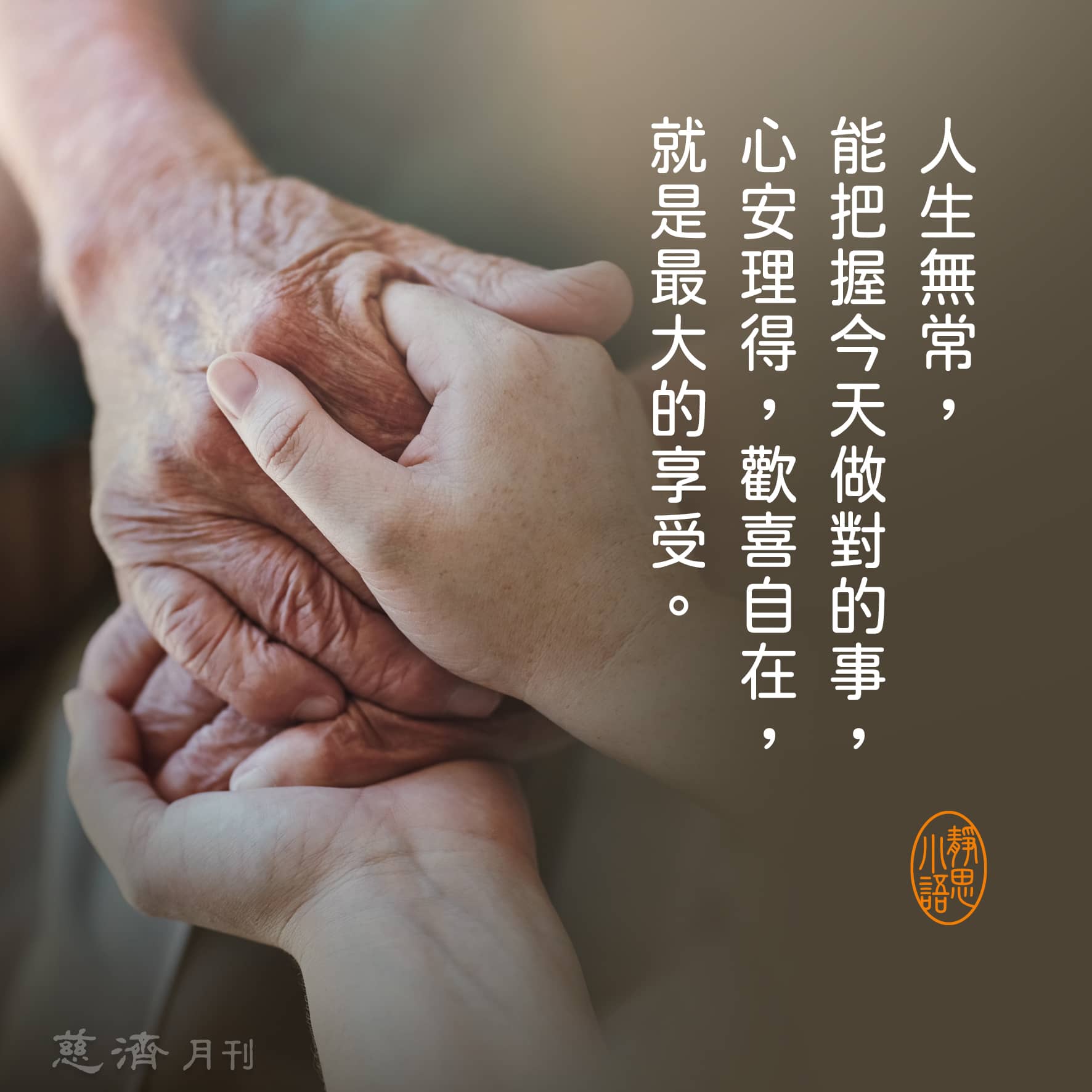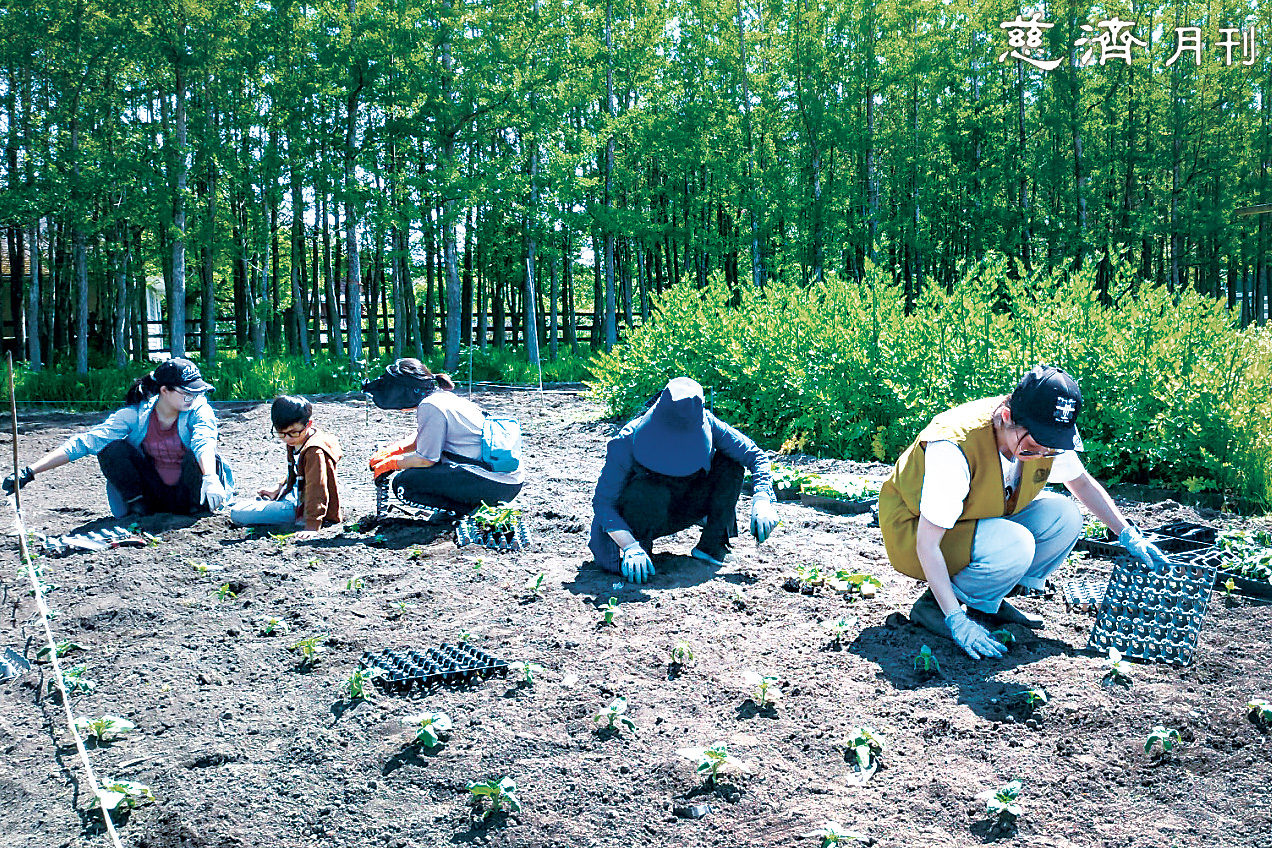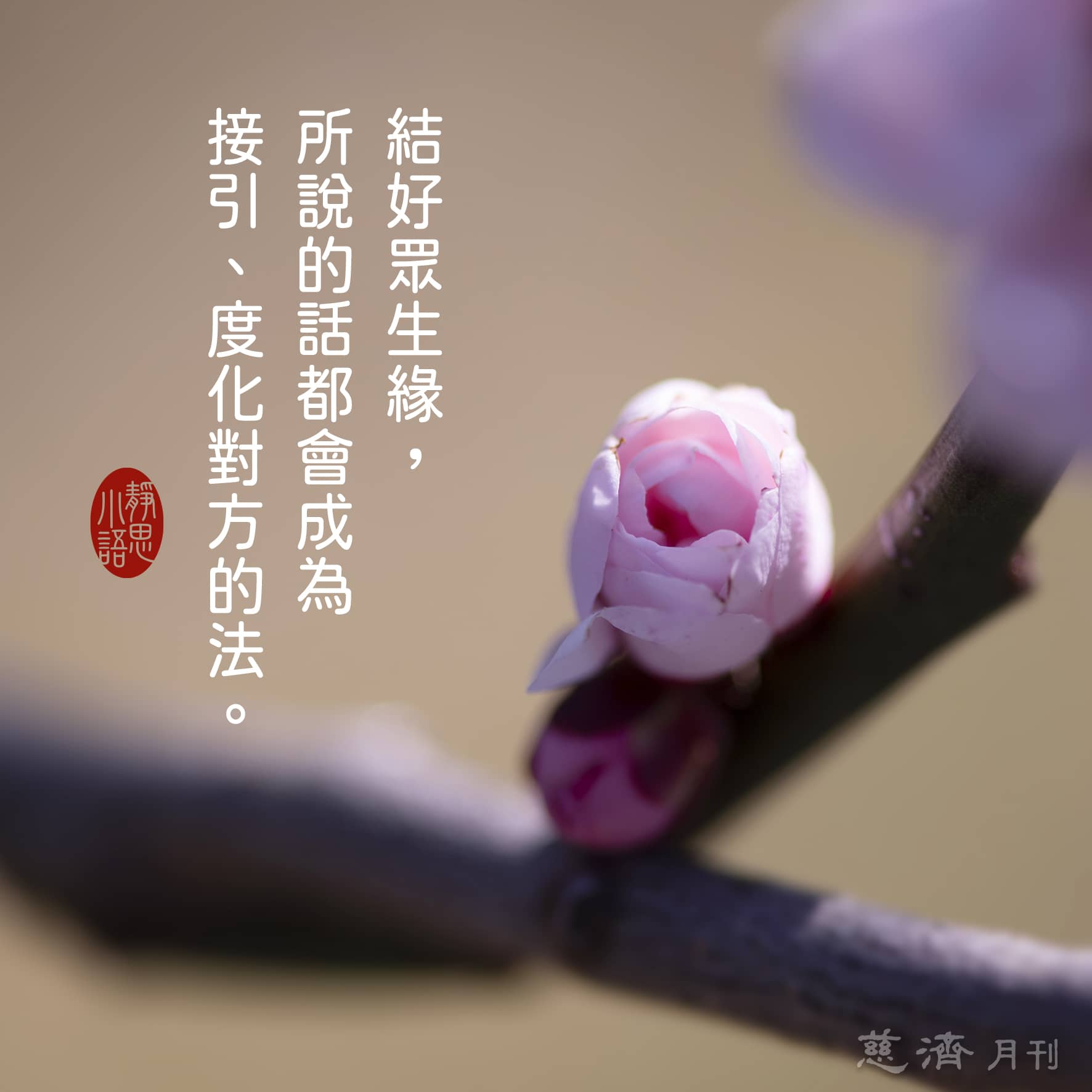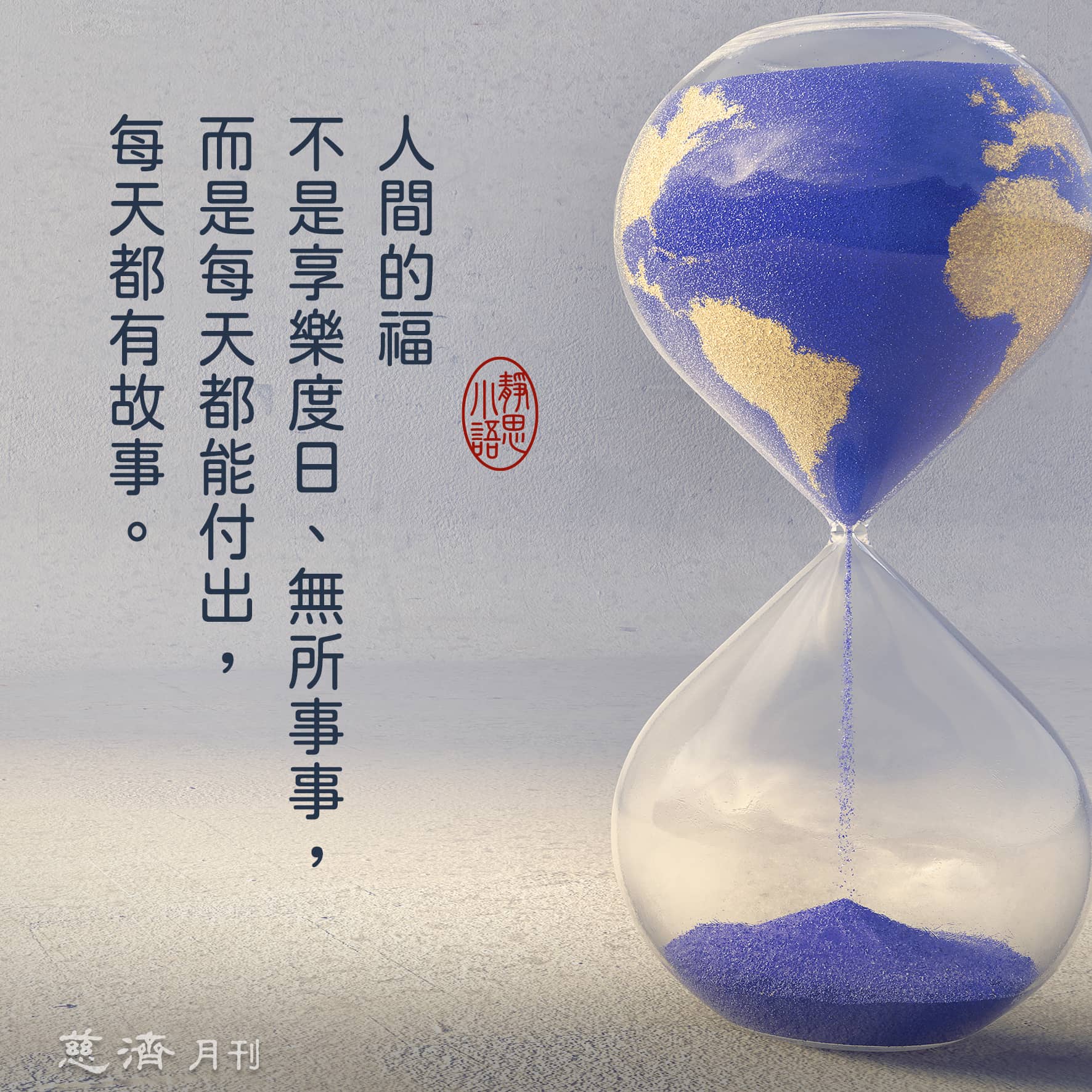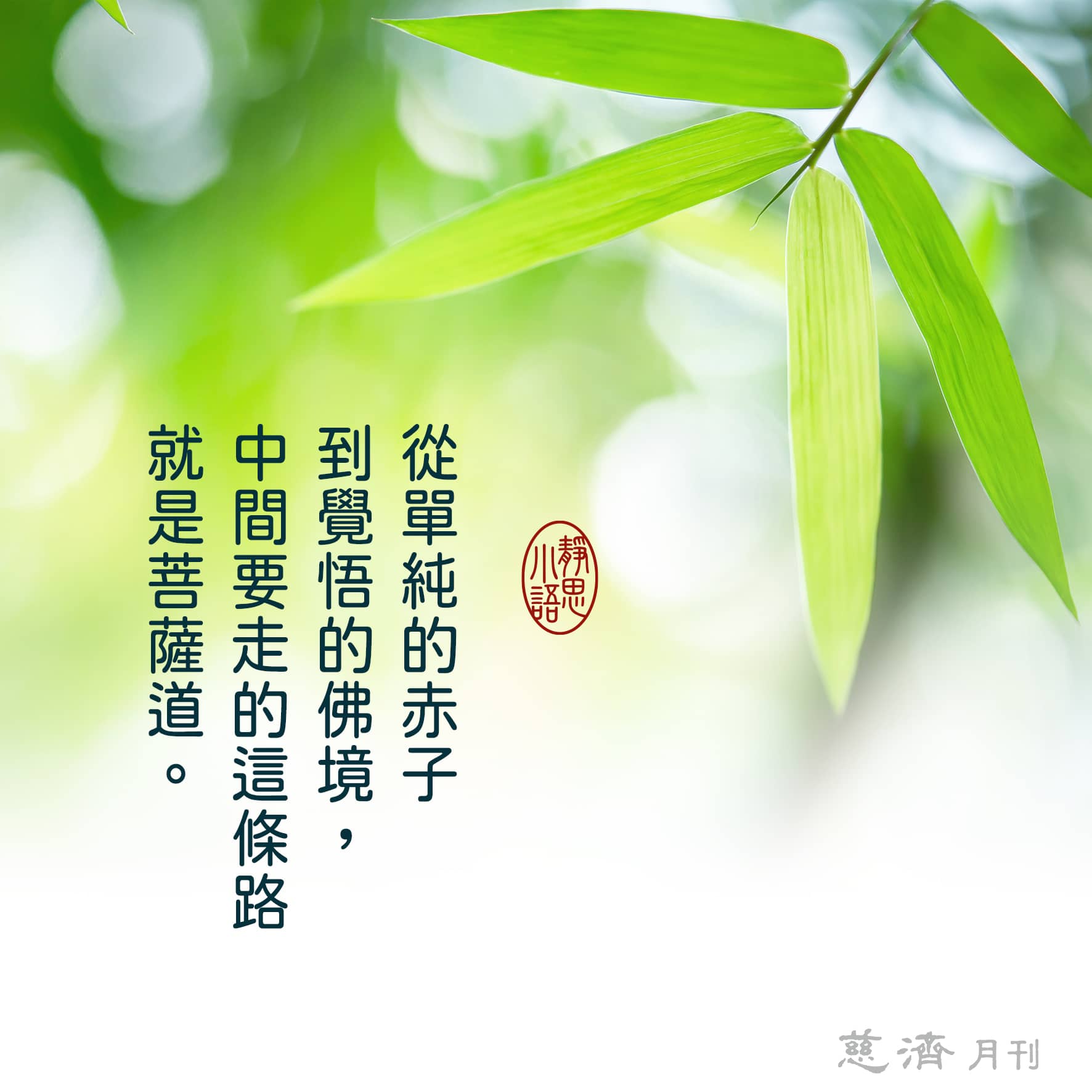3.16~17《農二月‧初七至初八》
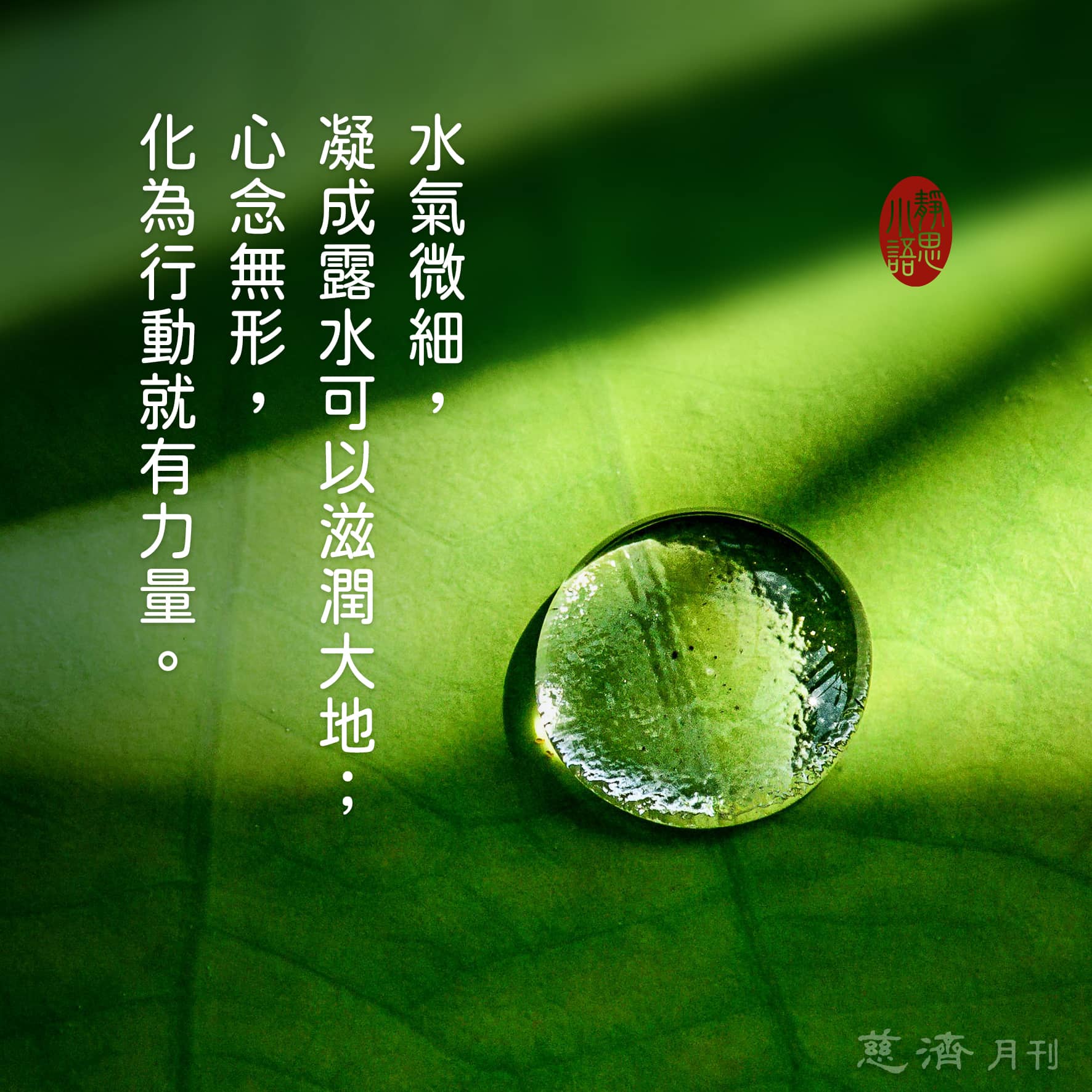
【靜思小語】水氣微細,凝成露水可以滋潤大地;心念無形,化為行動就有力量。
《證嚴上人衲履足跡》有聲書,由慈濟人文志業廣播內容創作中心提供,更多精彩的廣播節目,歡迎到「大愛網路電台」收聽。
慈濟發祥地
三月十六日與花蓮慈濟人座談,上人說,慈濟志業是從花蓮起步,慈濟的人與力從師父帶著常住眾,還有花蓮的家庭主婦,從每天存五毛錢開始;從最微末的一點、一滴,漸漸滋潤這片土地,甚至可以說是微細到看不見的水氣,卻能凝結於草木葉尖成為露水,給予大地生機。一念心無形,不過大家都很用心,將心念化為行動,力量就發揮出來了。
將近六十年來,慈濟的緣已經遍及國際,慈濟人道關懷一百三十三個國家地區。上人期勉身在慈濟發祥地的花蓮慈濟人,心力更凝聚,將在地的志工團隊鞏固起來,發揮更大的能量,做更多事。
「希望你們不只向外招募人間菩薩,自家子孫也要世代傳承,以善傳家,未來的人間更需要慈濟。慈濟的大家庭有大力量,淨化人心、洗滌人心,還要為天地人間造福。三界如一大宅,我期待這是如來宅而不是火宅,我們要離開老舊的火宅,回到如來的長者之家。」
上人也叮嚀中壯年、年輕的慈濟人,要多關心年長的法親,常常打電話鼓勵,與他們互動,進而帶著他們出門參加慈濟活動。遠親不如近鄰,與遠在外地的血親相較,法親近在社區,而且有相同的精神理念,可以就近照顧、彼此關心,晚年不孤單。
路長情更長
臺東慈濟人返回精舍與上人座談,並透過網路視訊,讓上人「雲端行腳」至臺東聯絡處、太麻里曙光環保站。上人對在座的師兄師姊說,自己對臺東的感情很深,因為當初離家往東行,先到臺東鹿野,之後在臺東市,結識王添丁校長夫婦等人,這幾位成為臺東的慈濟種子,一路陪伴自己做慈濟。
雖然花東縱谷腹地狹長,從臺東到花蓮要經過一段距離,走過一條很長的路,不過師徒情、菩薩情比這條路更長,慈濟在臺東的根要扎得更深,讓這棵菩提樹成長得更健壯,年年結出許多菩提子,長成庇蔭東部的菩提林。
「我若沒有你們,無法做慈濟;我若沒有從臺東經過,之後來到花蓮,也沒有現在的慈濟。所以不要小看那一點點的因與緣,種子播入土中,若無緣,土壤和氣候的條件不佳,這顆種子再好,也不會發芽。就是因為有緣,慈濟種子播入心田,而能萌芽成長,還能產生許多種子,再播入別人的心田。所以要靠大家分享,分享就是傳法、說法,把握機會對人談慈濟,用慈濟的好人、好事、好教育度化眾生。」
上人再談「學」與「覺」,「學」字下方一個「子」字,人人本具清淨的赤子本心,但若沒有緣,這分心發揮不了作用,徒然讓生命隨著時間消逝;若有緣受到接引,看見人間苦難而「見道」,與志同道合的人相伴走入人間菩薩道,就能在行道的過程中看見心地風光。雖然人生有限,萬物也有壞滅之時,不過「真空妙有」,因緣永遠都在,種如是因、結如是緣,就有如是果報。
為了救世、度眾生,佛陀教菩薩、傳菩薩法。上人表示現在大家正在行菩薩道,學習如何做菩薩,要用清淨單純的赤子之心受教,學菩薩道;既然認定了方向,就要踏實行道,否則永遠不能見道,也就無法覺悟。從「學」至「覺」,最重要的是中間的這條大道,要認真走、認真學習。
「認真就是種子,認真就有覺性。眾生本具有清淨無染的本性,只是隨著時間被外在環境染得污濁,污染成五花十色。修行就是希望讓心性回歸清淨透徹,明心才有辦法見性,清楚看到這條道路,就要打開心門,走上菩薩道;只是看著,則無法體會這條道路的風光,永遠到達不了覺悟的目的地。」上人教大家認真行道,不斷往前開道鋪路,接引大眾同行,從「學」而「覺」。
不批評政治
「如是因、如是緣,假如種子很少,缺了因,緣就薄,無法強求。不過,我們也不能自卑,一顆小小的種子,從小小的地方,可以在國際間閃亮,也可以點亮其他國家地區的燈火。」三月十七日,上人與黃思賢師兄談慈濟在任何國家地區發揮人道精神救助苦難,都不牽涉政治,不批評、不干涉國家大事,唯守本分,淨化人心。
「我一向與人無爭、與事無爭、與世無爭,只是隨順因緣。我的個性靜而不好動,但是人群不動就無力。」提及當前社會局勢,上人認為還是要採取靜態,維持平安、平靜,而慈濟人在外與人互動、談話時,不要語帶批評,可以分享有愛心的人如何付出,以民間團體的立場講述民間事,而非談論國家大局。
「慈濟情,覺有情,菩薩道很單純,我們要好好走、好好學,也要有智者之見,那就是覺。我們的力量不是很大,要了解現在的人間局勢,但要永遠保持著單純的慈、穩定的悲,無緣大慈、同體大悲,讓大家平平安安。」上人說,雖然與全球人口相較,慈濟人非常少數,力量微弱,但是慈濟在人間,讓有緣接觸到的人發現、運用生命的價值,否則只是隨波逐流的眾生之一,懵懵懂懂不知造福還是造惡,這一生就這樣過去了。有了慈濟的因緣,可以見道,走入菩薩道,做好人、做好事,這也是慈濟的價值。
本專欄為靜思人文出版之《證嚴上人衲履足跡》精簡版;更完整的慈濟脈動與開示內容,以及師徒之間的感人對談,請展閱每季出版的《證嚴上人衲履足跡》
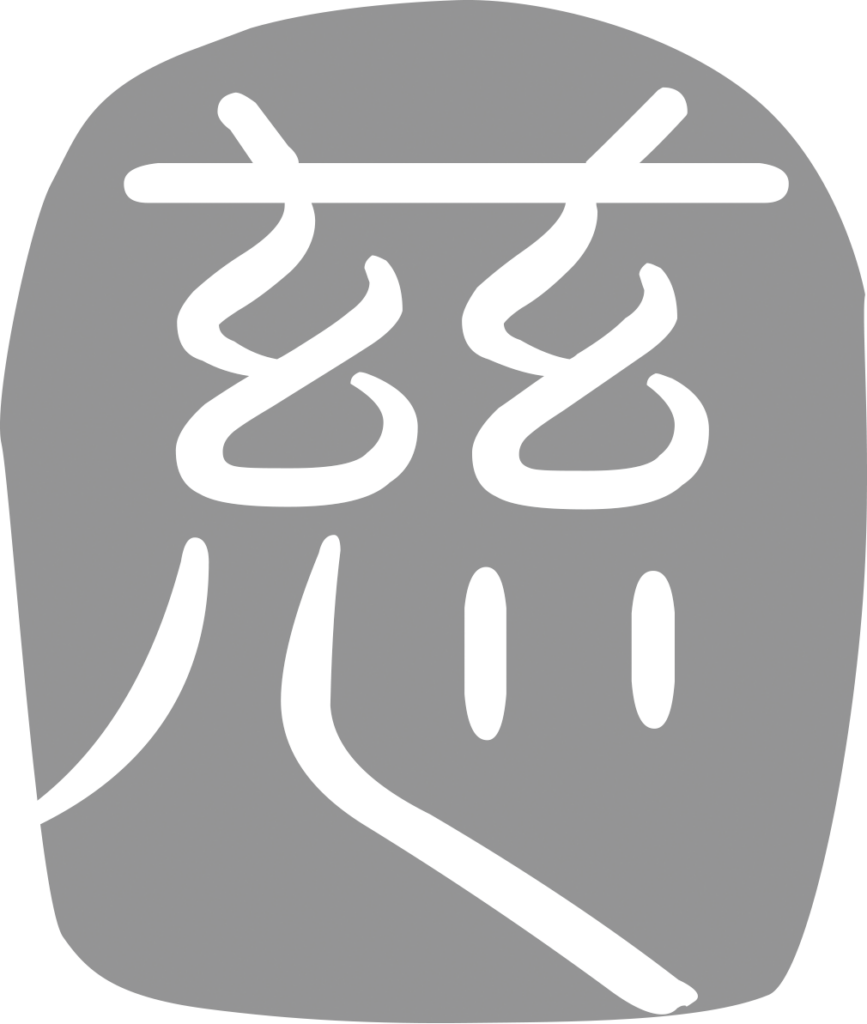
3.16~17《農二月‧初七至初八》

【靜思小語】水氣微細,凝成露水可以滋潤大地;心念無形,化為行動就有力量。
《證嚴上人衲履足跡》有聲書,由慈濟人文志業廣播內容創作中心提供,更多精彩的廣播節目,歡迎到「大愛網路電台」收聽。
慈濟發祥地
三月十六日與花蓮慈濟人座談,上人說,慈濟志業是從花蓮起步,慈濟的人與力從師父帶著常住眾,還有花蓮的家庭主婦,從每天存五毛錢開始;從最微末的一點、一滴,漸漸滋潤這片土地,甚至可以說是微細到看不見的水氣,卻能凝結於草木葉尖成為露水,給予大地生機。一念心無形,不過大家都很用心,將心念化為行動,力量就發揮出來了。
將近六十年來,慈濟的緣已經遍及國際,慈濟人道關懷一百三十三個國家地區。上人期勉身在慈濟發祥地的花蓮慈濟人,心力更凝聚,將在地的志工團隊鞏固起來,發揮更大的能量,做更多事。
「希望你們不只向外招募人間菩薩,自家子孫也要世代傳承,以善傳家,未來的人間更需要慈濟。慈濟的大家庭有大力量,淨化人心、洗滌人心,還要為天地人間造福。三界如一大宅,我期待這是如來宅而不是火宅,我們要離開老舊的火宅,回到如來的長者之家。」
上人也叮嚀中壯年、年輕的慈濟人,要多關心年長的法親,常常打電話鼓勵,與他們互動,進而帶著他們出門參加慈濟活動。遠親不如近鄰,與遠在外地的血親相較,法親近在社區,而且有相同的精神理念,可以就近照顧、彼此關心,晚年不孤單。
路長情更長
臺東慈濟人返回精舍與上人座談,並透過網路視訊,讓上人「雲端行腳」至臺東聯絡處、太麻里曙光環保站。上人對在座的師兄師姊說,自己對臺東的感情很深,因為當初離家往東行,先到臺東鹿野,之後在臺東市,結識王添丁校長夫婦等人,這幾位成為臺東的慈濟種子,一路陪伴自己做慈濟。
雖然花東縱谷腹地狹長,從臺東到花蓮要經過一段距離,走過一條很長的路,不過師徒情、菩薩情比這條路更長,慈濟在臺東的根要扎得更深,讓這棵菩提樹成長得更健壯,年年結出許多菩提子,長成庇蔭東部的菩提林。
「我若沒有你們,無法做慈濟;我若沒有從臺東經過,之後來到花蓮,也沒有現在的慈濟。所以不要小看那一點點的因與緣,種子播入土中,若無緣,土壤和氣候的條件不佳,這顆種子再好,也不會發芽。就是因為有緣,慈濟種子播入心田,而能萌芽成長,還能產生許多種子,再播入別人的心田。所以要靠大家分享,分享就是傳法、說法,把握機會對人談慈濟,用慈濟的好人、好事、好教育度化眾生。」
上人再談「學」與「覺」,「學」字下方一個「子」字,人人本具清淨的赤子本心,但若沒有緣,這分心發揮不了作用,徒然讓生命隨著時間消逝;若有緣受到接引,看見人間苦難而「見道」,與志同道合的人相伴走入人間菩薩道,就能在行道的過程中看見心地風光。雖然人生有限,萬物也有壞滅之時,不過「真空妙有」,因緣永遠都在,種如是因、結如是緣,就有如是果報。
為了救世、度眾生,佛陀教菩薩、傳菩薩法。上人表示現在大家正在行菩薩道,學習如何做菩薩,要用清淨單純的赤子之心受教,學菩薩道;既然認定了方向,就要踏實行道,否則永遠不能見道,也就無法覺悟。從「學」至「覺」,最重要的是中間的這條大道,要認真走、認真學習。
「認真就是種子,認真就有覺性。眾生本具有清淨無染的本性,只是隨著時間被外在環境染得污濁,污染成五花十色。修行就是希望讓心性回歸清淨透徹,明心才有辦法見性,清楚看到這條道路,就要打開心門,走上菩薩道;只是看著,則無法體會這條道路的風光,永遠到達不了覺悟的目的地。」上人教大家認真行道,不斷往前開道鋪路,接引大眾同行,從「學」而「覺」。
不批評政治
「如是因、如是緣,假如種子很少,缺了因,緣就薄,無法強求。不過,我們也不能自卑,一顆小小的種子,從小小的地方,可以在國際間閃亮,也可以點亮其他國家地區的燈火。」三月十七日,上人與黃思賢師兄談慈濟在任何國家地區發揮人道精神救助苦難,都不牽涉政治,不批評、不干涉國家大事,唯守本分,淨化人心。
「我一向與人無爭、與事無爭、與世無爭,只是隨順因緣。我的個性靜而不好動,但是人群不動就無力。」提及當前社會局勢,上人認為還是要採取靜態,維持平安、平靜,而慈濟人在外與人互動、談話時,不要語帶批評,可以分享有愛心的人如何付出,以民間團體的立場講述民間事,而非談論國家大局。
「慈濟情,覺有情,菩薩道很單純,我們要好好走、好好學,也要有智者之見,那就是覺。我們的力量不是很大,要了解現在的人間局勢,但要永遠保持著單純的慈、穩定的悲,無緣大慈、同體大悲,讓大家平平安安。」上人說,雖然與全球人口相較,慈濟人非常少數,力量微弱,但是慈濟在人間,讓有緣接觸到的人發現、運用生命的價值,否則只是隨波逐流的眾生之一,懵懵懂懂不知造福還是造惡,這一生就這樣過去了。有了慈濟的因緣,可以見道,走入菩薩道,做好人、做好事,這也是慈濟的價值。
本專欄為靜思人文出版之《證嚴上人衲履足跡》精簡版;更完整的慈濟脈動與開示內容,以及師徒之間的感人對談,請展閱每季出版的《證嚴上人衲履足跡》

